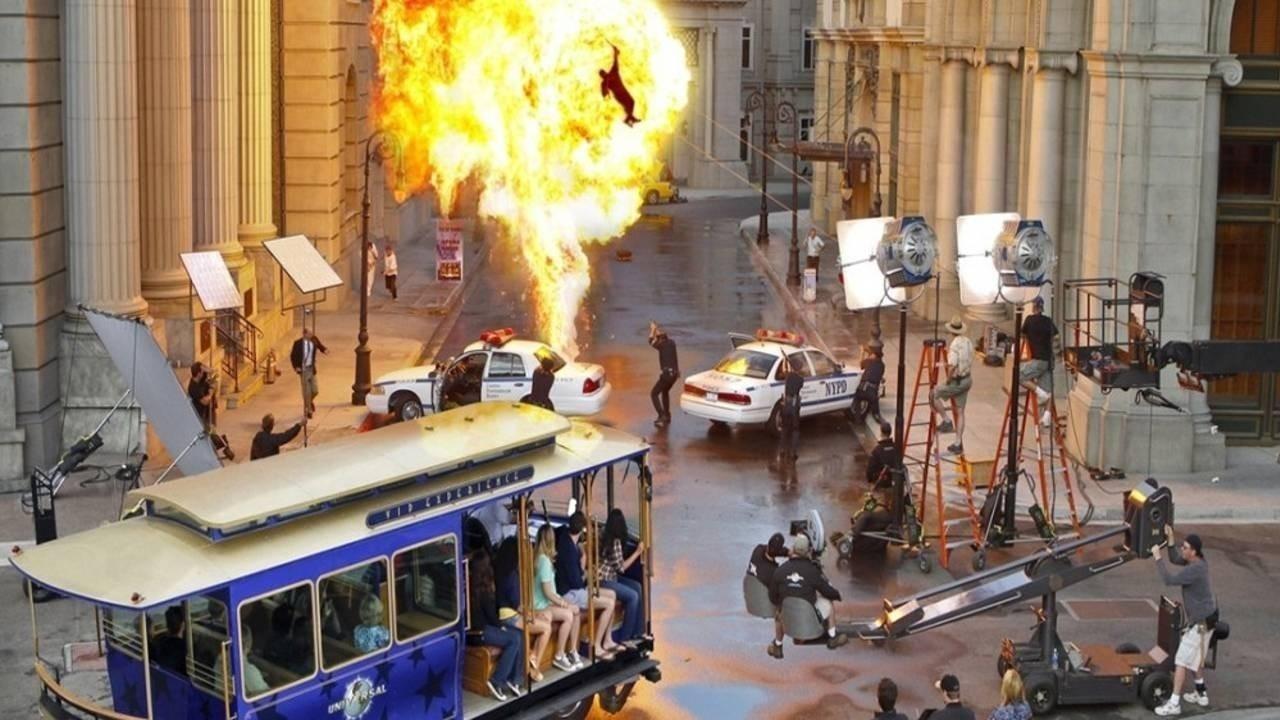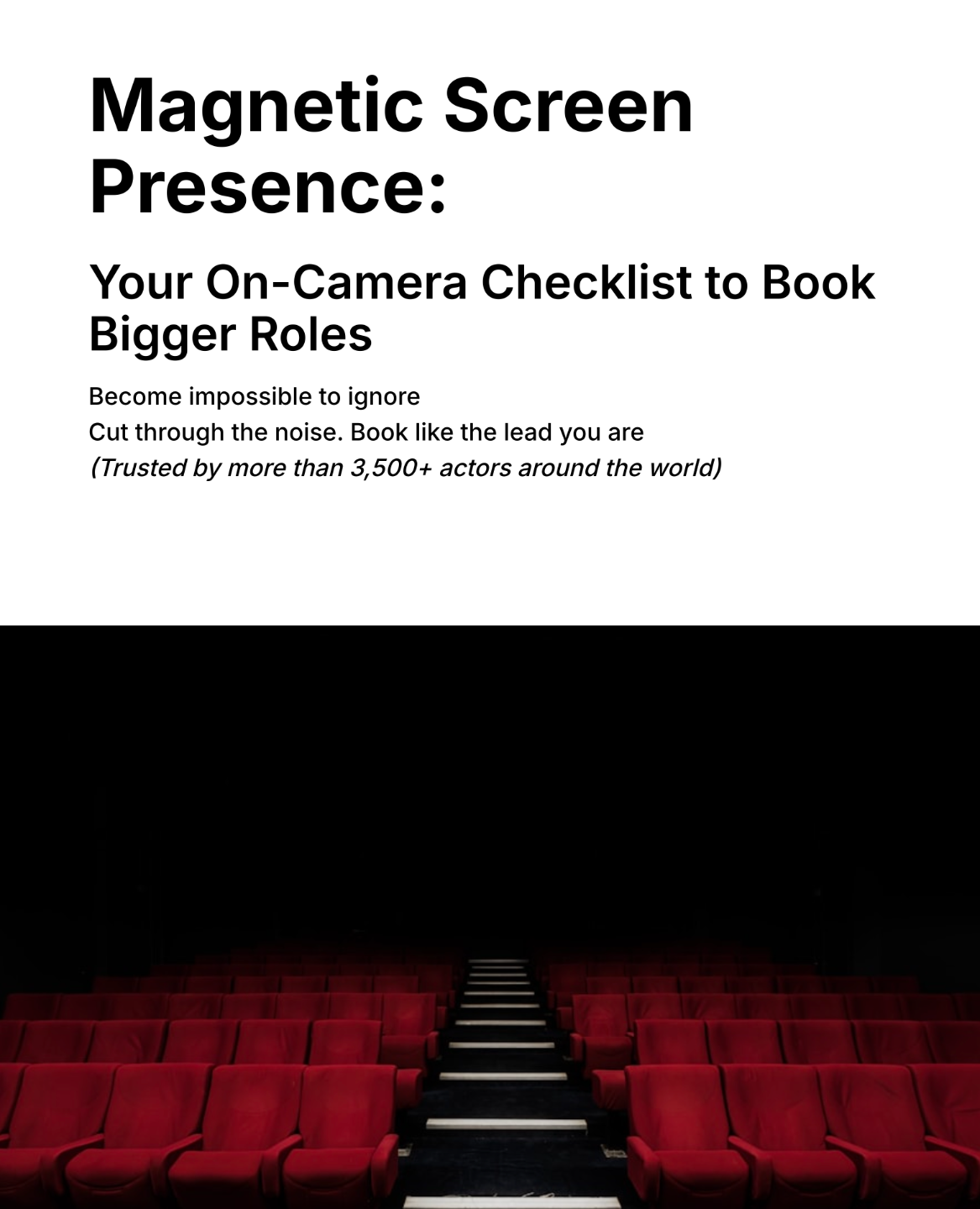Film Set Jargon 2023
Jan 19, 2023
Film Set Jargon 2023
First Things First : Always Stay Alert On Set
Keep your eyes peeled. There is a lot of heavy and dangerous equipment on a film set. It is your responsibility to ensure your own safety. And other peoples. Thank you.
Whether you are looking to understand film set jobs or you are a film production major or just want to know what "check the gate" means we're here to help :-)
COMMUNICATION: Proper use of film-set-jargon is essential for a well run film set. Any interactions with a film producer or a movie or tv director will be greatly improved by knowing your stuff guys. This movie set terminology and list of film set terms will help. Below is a glossary of film terms. Got any more? - send them in by clicking here. I love film lingo and set terms.
- “Talent” refers to any of the actors or models on set.
- “Crew” refers to any production staff on set.
- "First” First Assistant Director (He is the boss on set)
- The "Second". 2nd AD. At base. In charge of actor movements. Transportation. Liason between set and base.
-
Apple Box – Wooden boxes (Grip Department)
-
A.D.R – Automatic Dialogue Replacement (aka Dubbing). The process of rerecording dialogue in a studio after filming has been completed
-
Blocking – Rehearsing the scene, working out the actors movements on location without the camera rolling
-
Blonde – Nickname for a 2K open face light
-
Call sheet – A list of the days work schedule and what time everyone is needed on set. More info here
-
Crafty – Craft service, food and catering on a film set
-
Dailies – Recent footage ready to be watched, often looked at by the Director and Producer at the end of each shooting day (also called Rushes)
-
End Board – When a scene is boarded at the end of a shot and not the start - the board is also held upside down
-
Green – When you are green you are new to a job
-
Gate – The 1st AD will shout ‘Check the Gate’ the gate is the part of the camera that sits between the lens and the film. You check the gate to make sure there is no hair or dust on the film. This is also done when shooting digital.
-
Juicer – A Juicer is an electrician. Also called a Spark
-
"Legs" – The tripod legs, also called ‘Sticks’
-
Last Looks – Phrase used by the 1st AD, last chance to check actors, set equipment before filming begins
-
"Magic Hour" – The magic hour is the hour before sunset when natural light is at it’s best and the sky is golden
-
M.O.S – Code for filming mute ‘Mute On Sound’
-
"Pick Ups" – Shots that crew where unable to film on the scheduled shooting day. Usually small shots and cutaways
-
Red Head – Nickname for a 800 Watt open Face Light
-
"Sides" – Script pages of today’s scenes to be shot, in shooting order, usually printed onto A5 paper
-
Talent – Nickname for all actors
-
"Video Village" – The place where the monitor goes on set
- “Grips” People who move lighting/grip equipment.
- "Sparks" (Electricians)
- Craft Services” any food or drink provided for talent and crew. Running buffet. An American term, used more frequently now in the UK and Europe.
- “Green Room” is the area given to the talent (and usually talent alone) to rest between shot set-ups.
- “Practicals” are light fixtures that are normally found in the location you are shooting. i.e. desk lamp in an office, standing lamp in a living room.
- “Striking” is removing something, a light, a box, a horse, an actor.
- “Closed Set” means there is nude filming going on. You are not allowed on a closed set unless you are key to that scene.
- “Crossing” said before ANYONE crosses in front of camera during a shot set up.
- "Flashing" is said when anyone is taking a photograph of someone.
- “Quiet on set” said, you MUST stop making noise. No talking, no cell phones (not even on vibrate), no walking around. Silent as a mouse.
- “Take” is a scene that has been or is being filmed.
- "A Veronica" Slang for take. Veronica Lake. Uk based. Love this Film-set-jargon.
- "The bottle" The lens of the camera. "Don't look down the bottle."
- “Speed” means camera is rolling.
- “Print” is a term used by the director to specify which take is the best in a sequence.
- “Mark” is a blocking term that tells the actors where they need to land in order to be in focus for the camera, usually marked by an “x” on the floor in gaffer tape. Different colours for different characters.
- "Groucho's" The same thing. Groucho Marks. Gettit. You may also stand on a "sausage". A small roll of material useful for testing toe placement in close ups. Easy to hit without seeing.
- “Cheat” is to falsify the actors move intentionally to best suit the camera.
- “Martini Shot” is the very last shot in production for that day.
- "Magic Hour" The moment when the light is at it's most magical, usually when it changes from daylight to dusk.
- “10-1" Means "I need a bathroom break."
- “Stinger” is an extension cord. US based.
- “C-47″ is the fancy term for a clothespin. US based film-set-jargon.
- "Second Unit" When a separate unit films some event. Often missed footage from the first unit. Sometimes horse riding shots, extraneous driving shots...etc.
- “B-roll” sometimes used for cutaways to add detail, emotion or tension to a scene.
- “ADR” means Automatic Dialogue Replacement and is the process of recording dialogue separately from the action of the scene, that will later sync up with the scene.
- “MOS” stands for Motion Omit Sound and just means silent filming.
- <<Tweet this >>"Wrap" It's a wrap. End of filming. Comes from old studio term from silent films meaning.... Wind Reel And Print.
- All this Film-set-jargon goes back years does it not?
- Checks....Costume hair make up checks before shooting.
- End Board. Slating of scene at END of scene.
- Sound speed. Camera ready speed stable for shooting.
- "Turnover". Start the take. Camera turns over the motor.
- Wildtrack. A sound track without dialogue. Traffic or ambient sounds.
- Sticks. Camera legs. The frame they stand on.
- Edge Of Frame. The edge of the camera frame containing the performance. Useful to know...where the edge is.
- Apple Box . A wooden crate on which actors, DP's and cameras can be placed to alter height.
- Pagganinis. Stepped boxes to alter height. Known sometimes as"Pags"
- First Positions. Go to start of scene again.
- POV. Point of view. This camera shoots the scene from this point of view. Angle.
- Check the gate. Look to see if there is any scratch on film stock. Oddly still sometimes used even when shooting digital.
- Cut. End of a take.
- Coupe. Cut - in France.
- "Rollando". Turn over in Spain.
- "Motor" Same in Romania.
- Honey Wagon - a portable loo.
- Doing a banana. Move in a curve to allow the camera to see behind you (in the shape of a banana).
- Any more...?
Calling The Roll On Set
The Director does not call action. The First AD calls ‘Action’ and they do so by calling out out a series of calls that goes like this –
-
“Last Looks” (Last chance to check the actors, set, camera)
-
“Quiet Please”
-
“Turn Over” (Press Record)
-
“Speed” (Camera replies that they are recording)
-
“Speed” (Sound replies that they are recording)
-
“Scene One, Take One” (2nd AC Claps the Board)
-
“Action!” The 1st AD shouts Action
However this is very much a personal preference. Clint Eastwood famously does not shout anything. But just says quietly..."ok, go ahead."
Stephen Frears BARKS THE WORD ACTION AS LOUD AS HE CAN !! even if you are playing a quiet scene.
I know which I prefer...
Most Common Types Of Shots In Film
Here are the most frequently used shot types, you might see these letters written on call sheets, shot lists, scripts to show what type of shot is being used. Often abbreviated...
-
EST – Establishing shot
-
WS – Wide shot
-
MS – Medium shot
-
CU – Close up
-
ECU – Extreme close up
-
POV – Point of View
Please let me know guys if there are any more words or "film set slang" or "film jargon" that should be included in this list.
Transcript of Video
So, what could you do that might help you in an audition? What if you already imagined that you had already got the part? What if you imagined it was yours? What if you have that part now? Just take that part, just make it yours. Own it. This is my part, my role.
And when I'm going into an audition, I'm not really auditioning, because that sometimes is a you know, one of those words that freaks people out. No, I'm going in to share in a new rehearsal. Think of it this way.
You've already got the part. Share in the rehearsal.
Get the picture?
x Nick
Many more FREE acting audition training and life coaching videos for actor live right here
6 Massive Mistakes To Avoid On a Film Set
1. Never be Late
If you’re not early, you’re late. I love to get to work at least 15 minutes early every day i'm on a film set. This gives me time to read my call sheet and sides, eat some breakfast and enjoy a decent cup of roasted coffee.If you are late on day one you create a bad rep for yourself and this industry is built on RnR (reputation and relationships). So, set an early alarm. Check a map. The night before :-) Be prepared - the night before. Did i say the night before yet?
2. Names. Agh!
It’s great if you can remember as many names as you can on your first day on a film set. Check the cast and crew list if you get one the night before. This will make you stand out and give you the best chance of others remembering you. I write down some names inside my phone.
3. Asking A Lead Actor What They Do
These guys are working hard. Let them approach you. I remember being too friendly on Minder with the late George Cole. He was polite but didn't want to talk. As i progressed in my career and took on larger roles myself, I realised he was conserving energy. Take your lead from them
4. Phone Ringing In A Take
Worst thing ever. Airplane more minimum. I have done it. It is horrendous. Facebook and Instagram can wait until you get home. If your phone rings during a take on set you may need to provide chocolates and beer to everyone for your sins.
5. Walking Through The Back Of A Shot
There is a lot of action and hassle and everyone moving at the same time. Keep a clear focussed head. Stay calm on set. Have a look at where the cameras are pointing and make sure you are not in the back of the shot. It’s embarrassing when you hear “Cut!” and everyone turns to face you!
6. NEVER be in another Actor’s Eye line
An eye line is where an actor is looking in the scene, usually at another actor. This field of focus is hyper important to us, isnt it? Last thing we need is someone moving around in vision. If in doubt or in a tight space, turn your back, kneel down, and stay out of the line of fire.
Alternatively, look down at the ground while the scene is played out. Don’t move around and NO fidgeting.
7 Film Set Safety Tips That Could Save Your Life
FAQ's on Film Set Jargon
1.What is a film set?
In film production, a film set is a place where filming takes place. That can be indoors inside a film studio outdoors on the lot, the open air spaces of a studio space or on a location away from the studio. The film set includes the scenery and props as arranged for shooting a film
2. What does a director say at the end of filming?
The director calls 'cut' on every take, it is the moment the director decides that what he has shot is enough. "It's a wrap' is called at the end of the day, once the last take of the last scene for that day has been done. It is a term from the silent movies meaning "Wind Reel And Print".
3. What does Turnover mean on a film set?
The First A.D. calls for the sound recordist and the audio to start and the camera to start rolling. “Turnover” is most often used in the British film industry.
Get exclusive training updates, powerful acting breakthroughs, and actor-friendly discounts—straight to your inbox
No spam. No fluff. Just real tools to help you book more work, faster
Join the list. Stay in the game.
Stay connected with news and updates!
Join Nick's mailing list to grab the latest news and updates from me and my team.
Don't worry, your deets will NEVER be shared.
We hate SPAM. We will never sell your information, for any reason.



